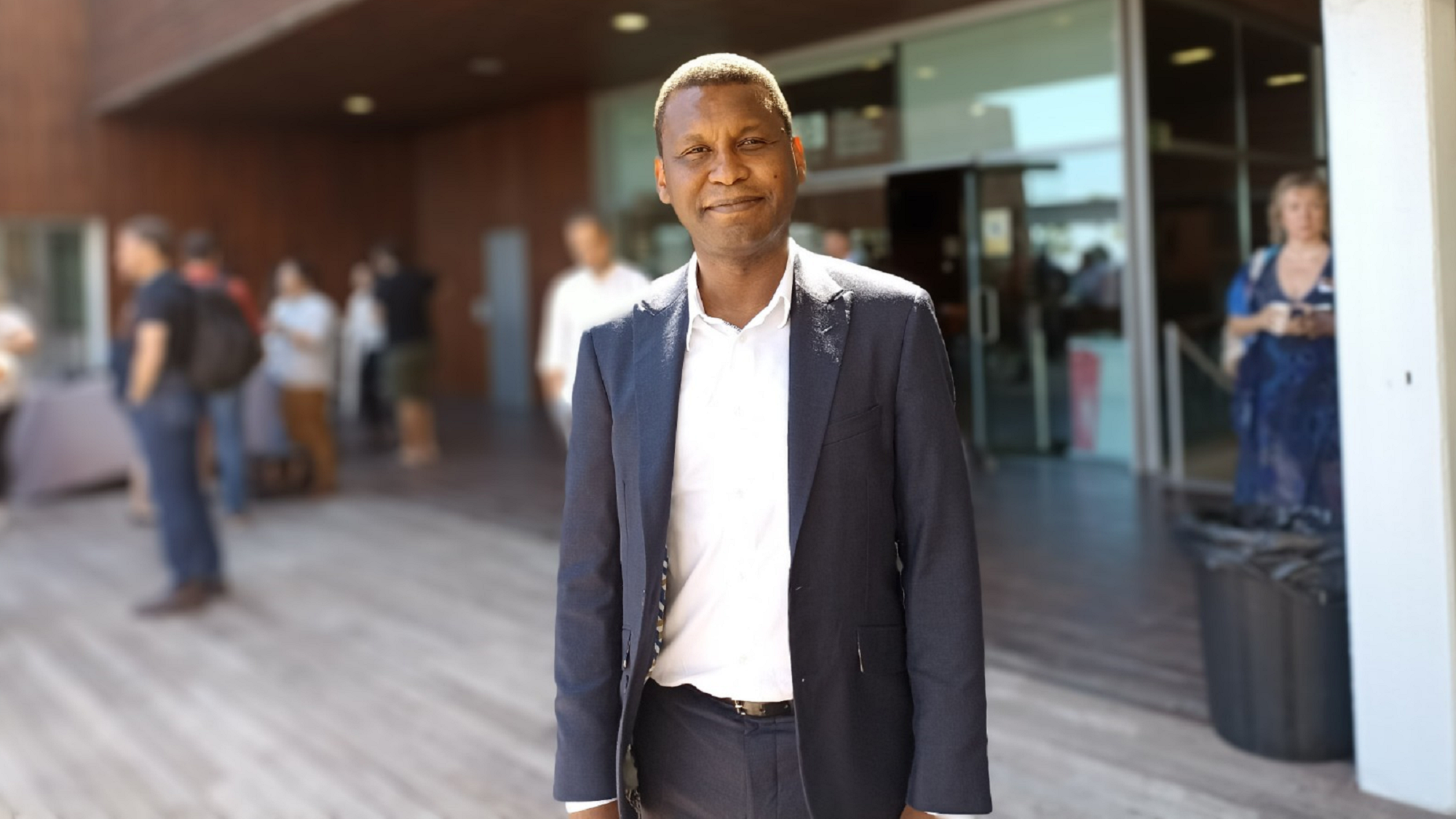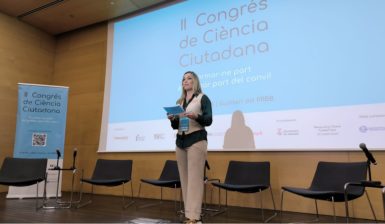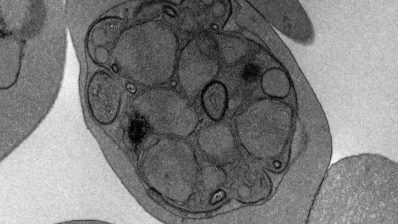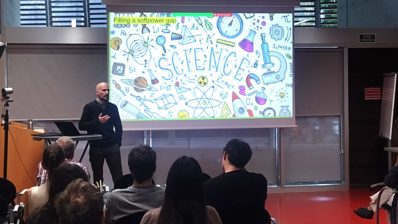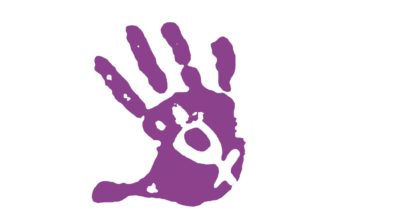In May 2023, the World Health Organisation (WHO) declared the end of the COVID-19 as a global health emergency. But it also stressed this didn’t mean the disease is no longer a global threat.
Indeed, with a balance of nearly 770 million cases and 7 million deaths worldwide, the worst of the pandemic is over; but the coronavirus is here to stay. In the words of Tedros Adhanom Ghebreyesus, WHO Director-General “It is still killing and it is still changing. The risk remains of new variants emerging that cause new surges in cases and deaths.”
This is why the 3-year END-VOC project (Funded by the European Union under grant agreement no. 101046314) started in the summer 2022. Its aim: to evaluate the circulation and impact of SARS-CoV-2 variants of concern (VOC) and to improve data collection and analysis to identify current and future threats.
The project, led from University College London (UCL) in the UK, and with 19 partners from all over the world – including the Barcelona Institute for Global Health (ISGlobal), with a team led by Elisabeth Cardis – will do this through the study of 28 well-characterised cohorts across the world.
In early June, the consortium, which gathers interdisciplinary global expertise from virology to public health, organised a scientific symposium at the Barcelona Biomedical Research Park (PRBB) Auditorium to discuss preparedness and response efforts at the European and global levels, as well as the state of the art on COVID-19 variants.
END-VOC symposium: COVID-19 Variants and the Next Pandemic
The meeting started with an intervention from Carmen Cabezas Peña, Secretary of Public Health of the Catalan Government, who praised the vaccine effort done at the international level, with more than 13,000 million doses given. Only in Catalonia, where 3 million doses are given annually for different diseases, during the Covid-19 pandemic there were more than 16 million doses. But she also reminded the audience of the importance to maintain the surveillance mechanisms.
Cabezas Peña also emphasized the importance of maintaining the surveillance mechanisms and working together: among different countries; among academia and clinicians and private companies.
Indeed, that is something the WHO has recognised, according to the speaker Oliver Morgan, Director Pandemic and Epidemic Intelligence Systems at the global organisation. In April 2022, WHO released a genomic surveillance strategy – and created IPSN, an International Pathogen surveying Network including academics, public health sector, private sector and civil society.
“We need to be prepared for the next pandemic, because the next pandemic will arrive”
Carmen Cabezas Peña (secretary of Puclic Health, Catalan Government)
The first part of the event, focused on epidemiology, included speakers such as Oliver Morgan, who gave the WHO global view – including the role of AI and new technologies in the detection of pandemic and epidemic risks; Janet Diaz, also from the WHO, who gave a more clinical view; and Anniek de Ruijter, who talked about the legal aspects. On the second part, Tom Peacock (Imperial College), François Balloux (UCL), Sergio Abrignani (University of Milan) and Nisreen A. Alwan (University of Southampton) discussed the state of the art of the SARS-Cov-2 variants.
We interviewed Ibrahim Abubakar, principal researcher of the project based at UCL.
“Detecting emerging Covid-19 variants of concern, and understanding their implications on diagnostics, vaccination strategies and treatment options is key to guiding our response to the virus“
Ibrahim Abubakar, principal researcher of the project (UCL)
First things first: what is the current situation of Covid-19?
The special global response to the pandemic has ended, but that doesn’t mean the response is over, especially for people with co-morbidities (other diseases). Or seasonally, e.g. in winter there will be more cases. So, it continues to be a serious threat to health that we should be conscious of.
What is the aim of END-VOC? Is it focused on Covid-19 or will it be useful for other pandemics?
END-VOC’s aim is to assemble cohorts from across the world – 28 in total, from Europe, but also from Brazil, India, Nigeria, all continents- to follow the appearance of SARS-CoV-2 variants of concern (VOC). These are variants that acquire mutations that make them more pathogenic, or more transmissible. Viruses mutate very frequently, but most variants disappear rapidly. It is the VOCs – such as Alpha, Beta, Gamma. Delta or Omicron, in the case of the coronavirus – that are more dangerous.
The objective of END-VOC is to gather data that helps us understand how to best to treat people with Covid (including those with long Covid), but also how use this information to prepare for the next pandemic.
What have we learned from the coronavirus pandemic and the world’s response to it?
There is a lot to learn: what is the best way to put together the different datasets from different countries; how do you use these to decide which treatments work, or how to prioritise who to vaccinate first; how to bring about the preventive measures – such as social distancing – in an effective way with the least amount of impact in society in terms of economic cost, etc. All of this we want to learn from the data we are collecting and use if to inform policies at the national, international and global levels.
What are the main challenges in collecting and learning from these data?
First of all, there are a myriad of challenges with data collection from such different places. Some are related to economic resources – some places have the ability to sequence much more than others, for example. But it’s fascinating to see that a minimal collection of data happened almost everywhere, even in the remotest places in the world.
“It’s fascinating to see that a minimal collection of data happened almost everywhere, even in the remotest places in the world”
But, in any case, creating data is just the first step. Then there are the technologies to store it, to transfer it from one place to another, the ethical and governance requirements…
Those have been a hot topic in the meeting…
Indeed. I must say, some of these ethical requirements and barriers are legitimate, are there to protect us, but others we have gone too far… In an attempt to “protect our data”, even when they were fully anonymised, some organisations have refused to share information which would have been for the global good. And I am sure most people would have wanted to share their anonymous data, with the right controls, to help understand the virus better.
But in any case, once we have that data, there’s what we do with it. We need the right minds to look at it, the right multilateral agreements and agencies such as the WHO to process that data and produce reports that public health authorities, clinicians and scientist can use to inform a response.
“We have the responsibility to produce the best science and to communicate it as clearly as possible so that politicians don’t have the excuse that the science doesn’t exist”
END-VOC is a research project. What is its link with policy making?
We are very well embedded with policy makers – amongst our partners are national public health organisations. We regularly speak with WHO and the centre for disease control (CDC).
Of course, it would be naïve to think that policy would ever rely on science alone. But we have the responsibility to produce the best science and to communicate it as clearly as possible so that politicians don’t have the excuse that the science doesn’t exist on this topic.


